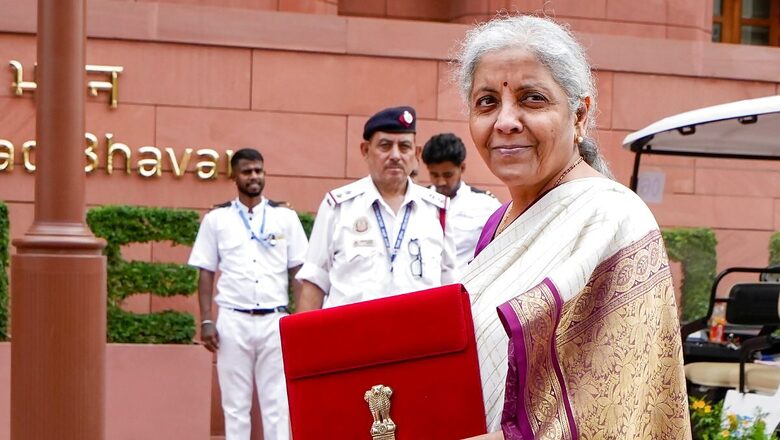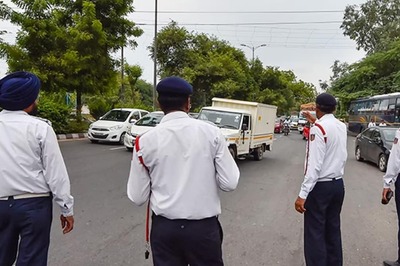
views
There is a subliminal message from the budget speech of Finance Minister Nirmala Sitharaman on Tuesday — the central government hereafter would be loath to shell out money either as grants or investments but more than willing to incentivise, nudge and guarantee.
Thus, both the NDA allies JD(U) and TDP have been told that the central government would play the role of the facilitator should both Bihar and Andhra, vociferous in demanding special economic status, approach multilateral financial institutions like the World Bank or the Asian Development Bank for long-term loans to fund their mammoth infrastructure projects.
This is trite to say that such loans attract much lower interest rates than the ones charged by the domestic institutions. The central government would obviously stand guarantee for such loans perhaps on the back of guarantee fees. Remember many foreign banks operating in India earn sizable income from giving letters of credit or bank guarantees typically 1 per cent of the non-fund-based credit thus extended.
Of course, they have to be prepared for stepping in when there is a default but the chances of that happening are as low as insurance claims. It seems the bankers’ model has been borrowed by the central government insofar as meeting persistent requests for central assistance by states is concerned.
Similarly, the government has told the youth subtly that government jobs will not be provided on a scale that was the plank of the INDI alliance in the recent Lok Sabha elections. Direct Benefit Transfer of one-month salary in three installments up to Rs 15,000 to first-time employees registered in Employees’ Provident Fund Organisation (EPFO) has been proposed in the budget.
Likewise, employers too would be incentivised to hire regular employees rather than through contractors by reimbursing their contributions to such new employees at the rate of Rs 3,000 per month maximum for four years. These incentives are much better than the inane section 80JJAA scheme under which employers can claim 190 per cent deduction for additional wages paid vis-à-vis the previous year at the rate of 30 per cent additional claim for each one of the three years starting with the current year subject to the conditions such employees should not be drawing more than Rs 25,000 per month.
The MSME sector too has been told that the government would stand guarantee for their loans from the banking system under the MSME credit guarantee scheme. Internship initiative announced in the budget scheme is a clever one that spares the government of any financial burden.
Union Finance Minister Nirmala Sitharaman announced that the government will launch an internship scheme to provide opportunities to one crore youth in top 500 companies over the next five years. An internship allowance of Rs 5,000 every month and one-time assistance of Rs 6,000 will be provided under the new scheme. The companies facilitating the internship will bear the cost of training the interns and use their Corporate Social Responsibility (CSR) funds for it.
“Interns will get exposure to real-life environments and an allowance every month,” she said. Companies would hopefully lap up the Corporate Social Responsibility benefit dovetailed with the internship scheme and at the same time get to hire fairly talented people at extremely low wages. The opposition is bound to call it extension of Agniveer scheme obtaining for armed forces to the civilian landscape but one hopes good companies would regularise the interns sooner or later.
Not stepping into the quagmire of funding or investing seems to be the chastening lesson the government has learnt. Indeed, the role of a government is to facilitate and not assume direct responsibilities.
The writer is a senior columnist. He tweets @smurlidharan. Views expressed in the above piece are personal and solely those of the author. They do not necessarily reflect News18’s views.



















Comments
0 comment